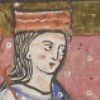10 Ancient History Books That Separate Experts from Amateurs
Curated by historians Tom Holland, Simon Sebag-Montefiore, and Eric Cline, these Ancient History Books offer nuanced views and deep insights into ancient civilizations.






What if the stories of ancient kings, empires, and civilizations are just the surface of a far richer human drama? Ancient history isn’t just dusty dates and distant battles; it’s the story of real people who shaped societies in ways that still echo today. Exploring these narratives now helps us understand how power, culture, and human resilience formed the foundations of our modern world.
Historians like Tom Holland, known for translating Herodotus, and Simon Sebag-Montefiore, celebrated for vivid storytelling, have shaped modern views on ancient empires. Eric Cline, an archaeologist specializing in Bronze Age collapse, has illuminated the fragility of interconnected civilizations. Their expertise and discoveries bring fresh perspectives to how we interpret the ancient past, revealing overlooked voices and complex dynamics.
While these expert-curated books reveal proven insights, you might want a deeper dive tailored to your interests, whether you're fascinated by political intrigue, archaeological mysteries, or social history. Consider creating a personalized Ancient History book that builds on these expert foundations and matches your goals and knowledge level.
Recommended by Eleanor Robson
Author and historian specializing in ancient mathematics
“This vivid and engaging narrative offers a genuinely new and exciting approach to ancient Middle Eastern history. Combining the very latest research―there are new insights here, even for specialists―with empathy and imaginative flair, Professor Podany invites us to consider the people of the distant past as real human beings, with bodies and minds, senses and emotions. I loved every page of this book and can't wait to share it with my students.”
by Amanda H. Podany··You?
by Amanda H. Podany··You?
When Amanda H. Podany discovered the power of personal stories hidden in ancient clay tablets, she crafted a history that sheds light on everyday lives in the ancient Near East. You learn not just about kings and empires but about the weaver who rose to workshop supervisor, the musician, and the family enduring famine—offering a textured understanding of how these individuals shaped and were shaped by their world. Chapters vividly portray these lives alongside the political and social shifts surrounding them, making this book ideal if you want to grasp how human experiences intersect with grand historical narratives. This isn’t just ancient history; it’s a human story that invites you to see the past through intimate, relatable moments.
Recommended by Lloyd Llewellyn-Jones
Author of Persians
“A superb, compelling, and exuberantly written history of the Assyrians, popularly known only as the bad guys of the Old Testament, but actually one of the most significant of all ancient Near Eastern empire builders. This book is filled with fascinating detail and cliché-busting analysis. Sweeping yet nuanced, Eckart Frahm challenges—and changes—the way we think about the Assyrians and the culture they fashioned.”
by Eckart Frahm··You?
by Eckart Frahm··You?
When Eckart Frahm first uncovered the depth of Assyria's influence beyond its reputation as a brutal empire, he crafted a narrative that reshapes how you understand ancient power structures. Drawing on decades as a Yale Assyriology professor, Frahm reveals the empire’s administrative genius, cultural achievements, and role of women, providing insights into empire-building that echo into modern governance. You’ll explore Assyria’s extensive libraries and trade networks, learning about the complexity behind its military conquests and political strategies. This book suits anyone intrigued by how ancient civilizations shaped global history and those seeking to grasp the foundations of imperial power beyond familiar stereotypes.
by TailoredRead AI·
by TailoredRead AI·
This personalized framework explores the political and cultural development of ancient empires through a tailored approach that fits your specific interests and goals. It provides in-depth analysis of empire-building strategies, governance structures, cultural interactions, and socio-economic dynamics that shaped ancient civilizations. The book adjusts its focus to your preferred empires, historical contexts, and thematic priorities, cutting through generic narratives to deliver insights relevant to your unique perspective. By integrating comparative methodologies and case studies, it addresses the complexities of empire rise and fall, offering a nuanced understanding of ancient power systems within your personalized framework.
Recommended by Tom Holland
Historian and author, Herodotus translator
“A brilliant feat of resurrection, restoring to the Persian Empire the color, brilliance, and complexity that renders it one of the most fascinating and influential of ancient civilizations, and of which for so long, in most histories of antiquity, it has been bled.”
by Lloyd Llewellyn-Jones··You?
by Lloyd Llewellyn-Jones··You?
What if everything you knew about the Persian Empire was wrong? Lloyd Llewellyn-Jones, an expert in ancient history and director at the British Institute of Persian Studies, challenges conventional narratives by drawing extensively on Iranian inscriptions, cuneiform tablets, and archaeology rather than typical Greek accounts. You’ll gain a vivid understanding of the Achaemenid dynasty’s political sophistication, cultural tolerance, and imperial strategies, illuminated through detailed chapters on Persepolis and key rulers like Cyrus and Xerxes. This book is designed for anyone fascinated by empire dynamics, ancient diplomacy, or Middle Eastern history, but it demands your attention to absorb its rich, nuanced portrayal that reshapes how you see antiquity’s largest superpower.
by James Lacey··You?
by James Lacey··You?
James Lacey's analysis reshapes how you understand Roman strategic thought by moving beyond the usual military focus to include diplomacy, economics, and politics. Drawing from his extensive background in strategic studies, Lacey takes you through pivotal moments from Augustus to the empire's fall in 476 CE, revealing how Rome adapted to evolving internal and external pressures over five centuries. For example, he explores the changing nature of threats and political arrangements that demanded flexibility from Roman strategists. If you seek a nuanced view of Rome’s longevity and decline that integrates broad strategic elements, this book offers insights you won’t find in typical ancient history surveys.
Recommended by Benjamin Wittes
Senior Fellow at Brookings, Lawfare Editor
“Never has a book about history that's two millennia old been so timely. Duncan, in the sort of narrative prose that caused his podcasts to electrify history lovers everywhere, tells the story of the decay of Republican Rome-and its contemporary relevance drips off every page. The Storm Before the Storm has everything from vividly portrayed populist demagogues exploiting economic and social inequality to the failure of calcified republican institutions to adapt to changing circumstances. You'll learn as much about the problems we face today from this book as from any newspaper.”
Unlike most ancient history books that focus on the well-trodden narratives of Julius Caesar and Augustus, Mike Duncan zooms in on the turbulent decades before their rise, exploring the political and social upheavals that destabilized the Roman Republic. Drawing from his background as a renowned history podcaster, Duncan vividly portrays figures like Marius, Sulla, and the Gracchi brothers while dissecting themes such as economic inequality, citizenship struggles, and institutional decay. You’ll come away with a nuanced understanding of how these early crises set dangerous precedents that eventually led to the Republic’s fall. This book suits anyone fascinated by political systems, historical patterns, or the roots of modern governance challenges.
by TailoredRead AI·
This tailored book provides a focused examination of female leadership within ancient civilizations, presenting a personalized framework that highlights the lives, influence, and governance styles of women rulers throughout history. It addresses the diverse sociopolitical contexts in which these queens operated, alongside their strategic decisions and cultural impact. The methodology offers a comparative analysis of leadership models adapted to your particular historical interests, cutting through generic narratives to fit your specific focus areas, whether political, cultural, or military. By integrating tailored insights, the book explores how these women shaped and challenged power structures, providing a nuanced understanding of gender and authority in antiquity.
Recommended by S T E L L A S O L
Sexpert and lifestyle influencer
“I just drove for 9 hours & am finally home at 6am. I listened to this entire audio book. It was so fascinating. And now I’m going to sleep & dream about my past life as a female Egyptian King.” (from X)
by Kara Cooney··You?
by Kara Cooney··You?
When Kara Cooney first uncovered the surprising prevalence of female pharaohs in ancient Egypt, she set out to explore why women held such significant power in that society. You’ll gain detailed insights into the lives and political strategies of six queens, including Hatshepsut and Cleopatra, and how they navigated a male-dominated world to wield real authority. Chapters delve into cultural, religious, and political structures that allowed these women to reign, providing a nuanced understanding of gender and power dynamics. This book suits anyone curious about ancient civilizations, gender history, or political leadership, especially if you want to challenge modern assumptions about female power.
Recommended by Adam Gopnik
Staff writer at The New Yorker
“The memorable thing about Cline's book is the strangely recognizable picture he paints of this very faraway time. It was as globalized and cosmopolitan a time as any on record, albeit within a much smaller cosmos. The degree of interpenetration and of cultural sharing is astonishing.”
by Eric H. Cline··You?
by Eric H. Cline··You?
When Eric H. Cline first discovered the intricate web of causes behind the Late Bronze Age collapse, he crafted a narrative that goes beyond simple invasions to reveal a complex system failure involving trade disruptions, natural disasters, and societal unrest. You learn how interconnected ancient civilizations like the Minoans, Mycenaeans, and Egyptians were, and how their dependence on one another accelerated their downfall. Chapters vividly detail the roles of earthquakes, drought, and the enigmatic Sea Peoples, providing clarity on a centuries-old mystery. This book suits you if you want to understand the fragility of civilizations and the ripple effects of global interdependence in ancient times.
Recommended by The Economist
“A masterful new chronicle…. Beard is a sure-footed guide through arcane material that, in other hands, would grow tedious. Sifting myth from fact in dealing with the early history of the city, she enlivens―and deepens―scholarly debates by demonstrating how the Romans themselves shaped their legendary beginnings to short-term political ends…. Exemplary popular history, engaging but never dumbed down, providing both the grand sweep and the intimate details that bring the distant past vividly to life.”
by Mary Beard··You?
by Mary Beard··You?
Drawing from decades as a renowned classicist and popular historian, Mary Beard offers a nuanced look at Rome's rise from a modest village to a sprawling empire. You’ll delve into how Roman political struggles, citizenship, and social dynamics shaped notions of power still relevant today. The book balances famous figures like Julius Caesar with the often overlooked lives of slaves and women, challenging traditional narratives. Chapter 3’s exploration of the Catiline conspiracy vividly illustrates the tensions between democracy and autocracy that defined Rome’s trajectory. If you want a detailed yet readable account that questions assumptions about Rome, this is for you, although those seeking a purely military history might find it less focused.
Recommended by Publisher's Weekly
“In this thoughtful and meticulous reconsideration of Egyptian ancient- and pre-history, Egyptologist Romer draws directly from archaeological and hieroglyphic evidence in an effort to cast aside Western preconceptions. An essential read for anyone interested in Egyptian history. Maps and photos.”
by John Romer··You?
Unlike most histories that focus heavily on political narratives, John Romer's volume delves into the archaeological and cultural textures of Ancient Egypt's New Kingdom era, revealing a more nuanced civilization beyond empire-building. You get a vivid reconstruction of daily life, artistic endeavors, and international exchanges, grounded in evidence like broken artifacts and personal letters from tomb-builders. Romer's decades-long field experience infuses the book with insights that challenge popular myths about figures like Akhenaten and Ramesses II. This book is best suited for you if you want a deep, evidence-based understanding of Egypt that goes beyond surface-level storytelling, offering fresh perspectives supported by tangible findings.
Recommended by Jacquelyn Gill
Associate Professor, Climate Change Institute
“Another history book: Annalee Newitz's Four Lost Cities, which takes us through four ancient urban places, delving in the history, culture, and everyday life of these places, as well as the reasons for their ultimate demise. Entertaining, funny, fascinating.” (from X)
by Annalee Newitz·You?
by Annalee Newitz·You?
The debate over the true drivers behind the rise and fall of ancient cities is central to this exploration by Annalee Newitz, who leverages her science journalism background to challenge simplistic narratives about urban collapse. You’ll gain insight into four lost metropolises—Çatalhöyük, Pompeii, Angkor, and Cahokia—each dissected through archaeological research that highlights environmental shifts and political upheavals as intertwined forces shaping urban fate. Newitz goes beyond grand monuments to illuminate the lives of often overlooked groups like slaves and laborers, showing how their contributions shaped these cities. This book suits anyone curious about the complexities of urban history and the lessons those ancient struggles hold for modern city living.
Get Your Personal Ancient History Guide Fast ✨
Stop wading through generic history. Get strategies and stories tailored to your interests in minutes.
Join 15,000+ Ancient History enthusiasts who've personalized their approach
Conclusion
Across these 10 books, a few clear themes emerge: the vibrant humanity behind ancient records, the complexity of empire-building, and the enduring lessons from political upheaval and cultural change. Each book offers a unique lens, whether you’re intrigued by the strategic genius of Rome, the powerful queens of Egypt, or the interconnected collapse of Bronze Age civilizations.
If you’re grappling with understanding empire dynamics, start with Assyria and Persians for fresh perspectives on ancient power. For a grasp on political decline and social change, The Storm Before the Storm alongside SPQR provides compelling narratives. Dive into Weavers, Scribes, and Kings for the personal stories that animate history.
Once you’ve absorbed these expert insights, create a personalized Ancient History book to bridge the gap between these broad frameworks and your specific interests or professional needs. Tailored content helps transform understanding into meaningful knowledge suited just for you.
Frequently Asked Questions
I'm overwhelmed by choice – which book should I start with?
Start with "Weavers, Scribes, and Kings" to ground yourself in the human stories behind ancient events. It offers an accessible entry point into the ancient Near East that illuminates everyday lives alongside political history.
Are these books too advanced for someone new to Ancient History?
No, many of these books, like "The Storm Before the Storm" and "SPQR," balance scholarly insight with engaging storytelling, making them approachable for beginners while still enriching for seasoned readers.
What's the best order to read these books?
Begin regionally or thematically: Near East with "Weavers, Scribes, and Kings," then Persian and Assyrian empires, followed by Roman history books. Finish with thematic works like "Four Lost Cities" for urban history perspectives.
Do I really need to read all of these, or can I just pick one?
You can definitely pick based on your interests—for example, choose "When Women Ruled the World" for gender history or "1177 B.C." for Bronze Age collapse. Each book offers distinct insights valuable on its own.
Are there any books here that contradict each other?
While interpretations vary, these books complement more than contradict, offering diverse lenses—from archaeological evidence to political narratives—that together enrich your understanding of ancient history’s complexity.
How can I get book insights tailored to my specific Ancient History interests?
Yes! While these expert books provide broad knowledge, personalized Ancient History books can focus on your areas of interest or experience level. You can create your own tailored book here to get targeted insights efficiently.
📚 Love this book list?
Help fellow book lovers discover great books, share this curated list with others!
Related Articles You May Like
Explore more curated book recommendations









